Price hike by business syndicate: Myth or reality?
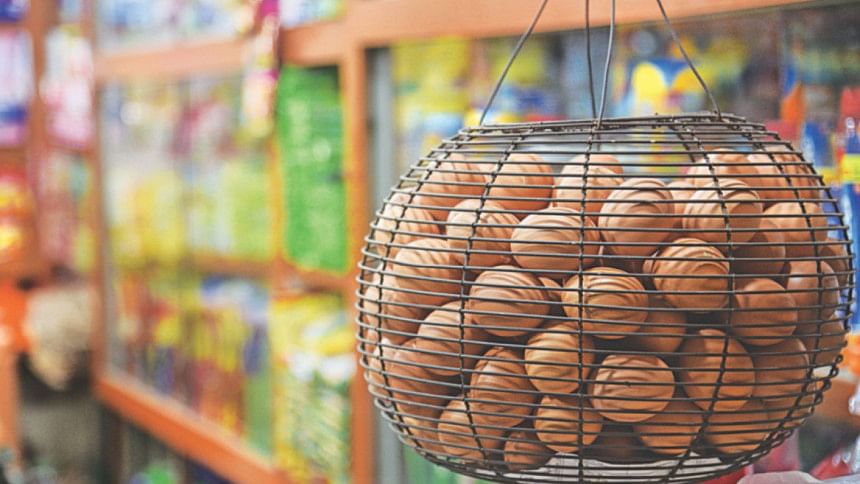
In recent weeks, the prices of vegetables have doubled or even tripled, sparking the usual chorus of complaints about price manipulation by so-called "syndicates." However, the real story behind this spike is far more complex and in this particular case rooted in severe supply shortages.
Bangladesh faced three rounds of floods this year due to untimely rains, which destroyed much of the country's crops. With supply drastically reduced while demand remained steady, the basic principles of economics took over—prices were bound to rise.
The same pattern occurred with eggs and chicken. Beginning in May, an intense heatwave coupled with high humidity severely affected egg production. Chickens, too, were underweight and in poor condition, further reducing supply. The floods that later devastated the vegetable market also hit the poultry industry, compounding the shortages and leading to inevitable price increases.
When supply drops sharply due to natural disasters, price hikes are unavoidable, regardless of market manipulation. We must understand the underlying causes rather than jump to conclusions about price fixing, especially in situations driven by unpredictable weather events.
Unfortunately, in Bangladesh whenever prices rise, public perception often points to price manipulation by sellers. This sentiment, deeply ingrained in the public mind, misses some crucial nuances. Prices don't just go up—they also come down in the short run, even though the long-term trend may be upward. Yet, consumers rarely notice or remember price drops, especially when it benefits them. This is particularly true for perishable goods such as fish, vegetables, and other similar products, which lack proper storage facilities. For instance, during favourable seasons when weather conditions and other factors influencing agricultural output align for farmers, production surges. The resulting price drops are often so severe that farmers sometimes leave unsold produce in the market or somewhere nearby, as transporting it back home and storing it for resale is not profitable. These cases of prices going down are often overlooked by the public, who are quick to focus on price hikes instead.
Price manipulation is nearly impossible in highly competitive markets. Take potatoes, for example. With thousands, if not millions, of sellers in the market, who can realistically believe that they all coordinate to artificially raise prices? In a competitive market, if 10 sellers agree to fix the price at Tk 60 per kilogram when the market rate is Tk 40, the first seller who notices their stock remaining unsold will lower their price. This single act would trigger a chain reaction, as other sellers follow suit. Collusion is incredibly difficult to sustain in such markets, particularly when the product being sold is uniform, offering consumers easy alternatives to switch to other sellers.
When the market has many sellers, no individual seller has the power to control prices. If a seller raises prices above the market rate, consumers will immediately switch to another seller offering the same product at a lower price. The very nature of competition keeps prices in check.
The idea that there's a "syndicate" behind every price hike is not only over-simplified but also misleading. However, collusion or price-fixing may occur in industries with only a few sellers, such as in the case of imported goods if the number of importers is few. In industries with only two or three dominant importers, price manipulation becomes more feasible because it's easier for them to coordinate and set higher prices. However, this is not the norm in most markets.
Even if we suspect foul play in the market, proving the existence of a price-fixing syndicate is not easy. It requires thorough research and, at times, pure detective work. In the US, for instance, the FBI once caught an airline CEO colluding with another CEO over the phone to fix ticket prices by phone tapping. Such investigations are rare and complex, and jumping to conclusions about syndicates without evidence can divert attention from real issues. Ultimately, price collusion is a matter of law and order, as it is a criminal offence. Countries like the US have strict antitrust laws to combat such anti-competitive behaviour. Bangladesh also has a competition commission, which is tasked with discouraging price-fixing and monopolistic practices. However, the enforcement of these laws in Bangladesh may not be as robust as needed.
The media also play a vital role in this issue by shaping public perception, and they must tread carefully. Every time the media declares the presence of a syndicate without proper investigation, it fuels populist rhetoric. It is easy to villainise businesses, and the public, having recently purchased goods at higher prices, will often accept this narrative without question. But the media's role is to investigate and inform—not simply to echo public sentiment.
In the end, both the media and consumers must approach the issue of price hikes with more maturity. If every instance of rising prices is attributed to a syndicate without proper investigation, it could actually make it harder to identify the real culprits behind any genuine market manipulation cases.
Rushad Faridi, PhD, is assistant professor at the Department of Economics at the University of Dhaka. He can be reached at [email protected].
Views expressed in this article are the author's own.
Follow The Daily Star Opinion on Facebook for the latest opinions, commentaries and analyses by experts and professionals. To contribute your article or letter to The Daily Star Opinion, see our guidelines for submission.

 For all latest news, follow The Daily Star's Google News channel.
For all latest news, follow The Daily Star's Google News channel. 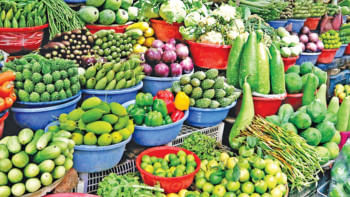
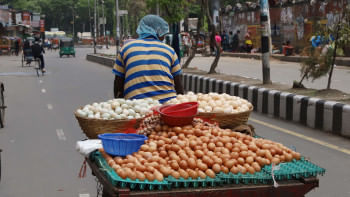


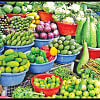





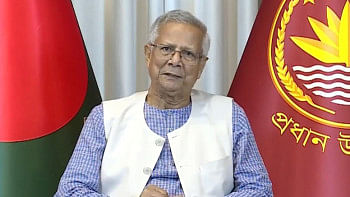
Comments